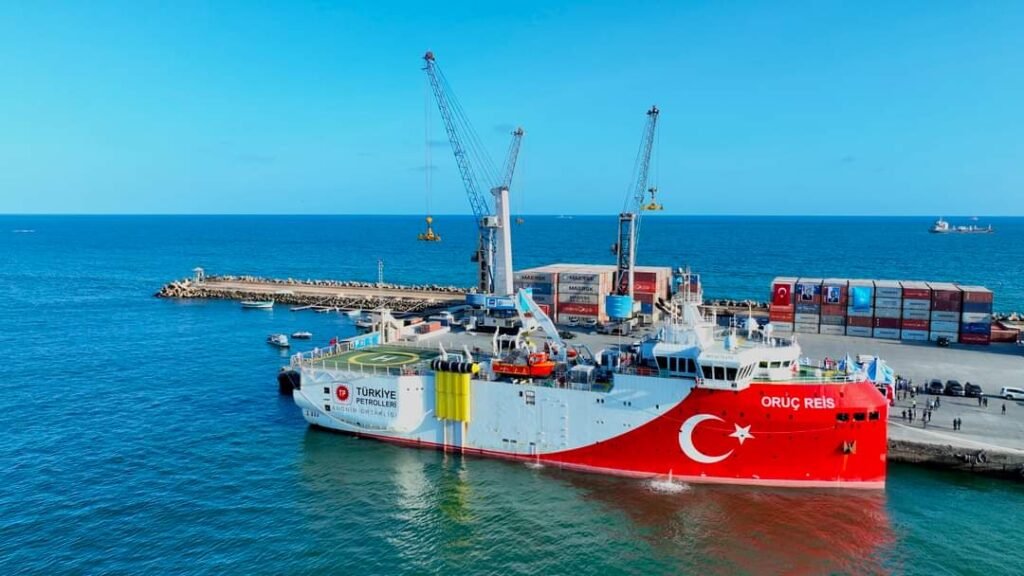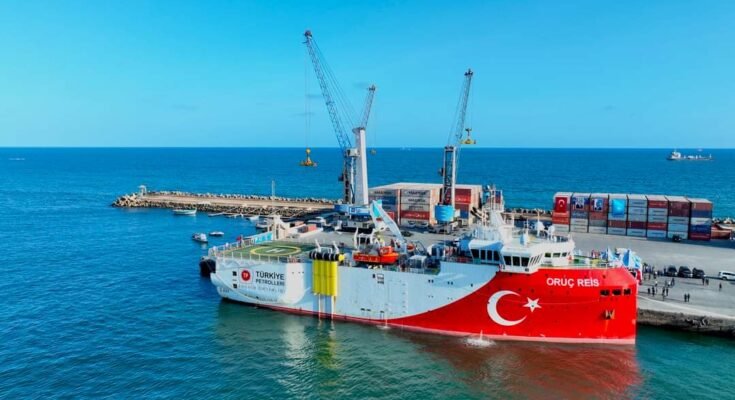Historical Significance of Mogadishu Port
The history of Mogadishu Port is intricately woven into the fabric of trade and commerce across the centuries. Established as a vital trading hub as early as the 10th century, Mogadishu rapidly grew in prominence due to its strategic location along the Indian Ocean trade routes. This prime geographical position allowed the port to serve as a nexus for merchants from diverse backgrounds, facilitating cultural and economic exchanges between Africa, the Middle East, and beyond.
During its early days, Mogadishu was influenced by the presence of Arab traders, who brought with them not only goods but also ideas and technologies. The city thrived on the trade of spices, ivory, and textiles, fostering its connections to distant markets such as Persia, India, and China. This period laid the foundation for Mogadishu’s reputation as a center of commerce and cultural melting pot. The introduction of Islamic traditions further enriched the port’s identity, as it became a focal point for scholars and religious leaders who played a crucial role in shaping the region’s history.
As the centuries progressed, Mogadishu Port continued to adapt and transform. During the medieval period, it emerged as a member of the mystical Swahili city-states, known for their maritime and trade expertise. The port’s architecture, including the beautiful coral stone structures, reflected the diverse influences from various cultures. European contact began in the 15th century, marking the beginning of a new era of trade dynamics and introducing foreign powers vying for control over this vital gateway.

Overall, the rich history of Mogadishu Port highlights its essential role in regional and global trade networks, showcasing how it has evolved over time while maintaining its significance as a central player in Somalia’s economic landscape. The historical context of Mogadishu not only illustrates its past but also lays the groundwork for understanding its current ambitions as Somalia’s global gateway.
Economic Impact of Mogadishu Port on Somalia
The Mogadishu Port plays a pivotal role in shaping Somalia’s economic landscape, serving as a crucial conduit for trade and commerce. As the primary port of the country, it not only facilitates the import and export of goods but also significantly contributes to the national economy. The port’s strategic location along the Indian Ocean positions it as an essential global gateway, fostering international trade relations and enhancing Somalia’s competitiveness in the regional market.
Recent developments and modernization efforts at Mogadishu Port have further amplified its economic impact. Improvements in infrastructure, such as deeper water channels and expanded cargo handling facilities, have allowed for increased shipping traffic and the accommodation of larger vessels. These advancements enhance the port’s capacity to manage diverse goods, including agricultural products, fish, and manufactured items. Consequently, the port has enabled Somali businesses to access international markets, leading to increased revenue and economic growth.
Moreover, the operational dynamism of Mogadishu Port has catalyzed job creation across various sectors of the economy. The expansion of port operations fosters direct employment opportunities, while boosting ancillary industries such as transportation, logistics, and customs services. This proliferation of jobs not only contributes to poverty alleviation but also empowers communities by providing stable livelihoods.
Despite its potential, the Mogadishu Port faces several challenges that may hinder its ability to maximize economic benefits. Issues such as infrastructural deficiencies, bureaucratic inefficiencies, and security concerns pose significant barriers to seamless operations. However, ongoing efforts to attract foreign investments and enhance governance are critical in addressing these challenges. By harnessing its strategic advantages and leveraging investments, Mogadishu Port can further elevate its role as a vital economic engine for Somalia, ensuring sustained growth and resilience in the face of adversity.
Geopolitical Importance of Mogadishu Port

The Mogadishu Port holds significant geopolitical importance as Somalia’s principal maritime gateway, presenting a strategic asset not only for the nation but also for the broader Horn of Africa region. Its location along major shipping routes enhances its role in international trade, allowing for increased connectivity between the Middle East, Africa, and other global markets. As maritime commerce continues to thrive, the port has the potential to be a critical hub for transshipment and logistics, positioning Somalia as an essential player in regional and global economic development.
In recent years, Mogadishu Port has attracted attention from neighboring countries and international partners, who recognize its potential to enhance maritime trade and bolster economic stability. The strategic nature of the port fosters relationships with nations seeking to establish a foothold in the region. Countries like Kenya, Ethiopia, and the United Arab Emirates have shown interest in investing in the port’s infrastructure, which would facilitate smoother trade routes and promote regional cooperation. This collaboration not only serves national interests but also contributes to a collective effort toward regional stability and development.
However, the geopolitical landscape surrounding Mogadishu Port is complex, marked by issues such as maritime security and piracy. The presence of threats in these waters necessitates robust security measures to protect shipping lanes, which can significantly impact trade dynamics. Moreover, addressing concerns related to piracy and illegal fishing is crucial for fostering a secure environment that encourages international shipping lines to utilize the port. Strong maritime governance, combined with strategic partnerships, is essential in addressing these challenges while maximizing the benefits brought by the port’s geopolitical relevance.
Future Prospects and Challenges for Mogadishu Port
The future of Mogadishu Port as Somalia’s global gateway presents a mix of promising prospects and daunting challenges. As the primary maritime hub in the nation, the port holds significant potential for growth and expansion, playing a crucial role in facilitating international trade. With strategic investments in operational capacity and infrastructure, Mogadishu Port can enhance its role as a logistics center, attracting both local and foreign shipping companies. Expansion plans may include increasing cargo handling capabilities and modernizing facilities to accommodate larger vessels, thereby improving global competitive advantage.
In addition to infrastructure development, the adoption of new technologies will be pivotal in optimizing port operations. Technological advancements, such as automation and digital systems, can lead to more efficient cargo management, reducing turnaround times and costs for international trade. By enhancing service delivery and operational efficiency, Mogadishu Port could position itself as a vital node in regional maritime networks, further integrating Somalia into global supply chains.
However, significant challenges loom over the port’s development trajectory. Key issues include insufficient infrastructure, which remains a barrier to achieving the port’s full potential. Coupled with ongoing security concerns, including piracy and regional conflicts, these challenges necessitate comprehensive governance frameworks to ensure a stable environment for investment. It is essential for the Somali government to strengthen its institutional capacities and establish clear regulatory parameters that encourage private sector participation while ensuring safety and security in port operations.

Moreover, sustainable practices must be integrated into the port’s development strategy, addressing economic, social, and environmental dimensions. Constructing resilient infrastructure that can withstand climate change impacts while maximizing community benefits will be crucial for achieving long-term viability. In summary, while Mogadishu Port holds the promise of becoming a significant player in global trade, navigating the inherent challenges will be essential for realizing its potential. Collaborative efforts between Somali authorities, private stakeholders, and international partners will be necessary to foster a conducive environment for growth.
